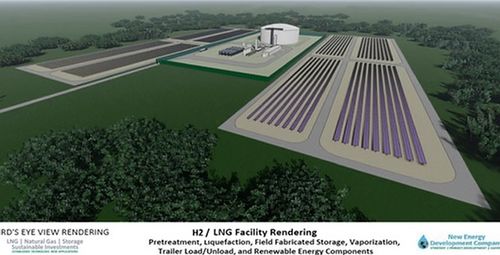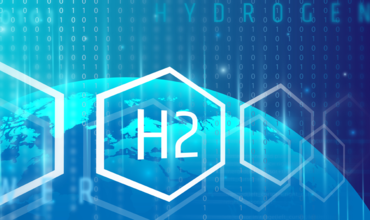ESG Clean Energy, a Massachusetts-based carbon capture and recycling firm formed in 2016, plans to go public in 2025 but will first raise pre-IPO platform equity, CEO Nick Scuderi said in an interview.
ESG Clean Energy will change its name in a re-brand and has hired an investment bank to help with the IPO, which does not yet have a targeted quarter, Scuderi said. He declined to name the advisor.
After the name change but prior to the public listing, ESG is seeking to raise between $20m and $40m in platform equity, he said. The company is interested in a traditional IPO, not a SPAC or private debut opportunity.
Angel investors have backed the company to date, with some $40m total raised, Scuderi said. He owns a controlling stake in the company.
Power, water and CO2
ESG Clean Energy, billed as a thermal dynamics and fluid mechanics engineering company, has patented technology for use in fossil combustion engines – both piston-driven engines and bottoming cycles (secondary thermal dynamic waste-to-energy systems). Exhaust is treated to produce CO2 and water.
The technology is commercialized, producing power at a facility in Holyoke, Massachusetts under a 5 MW/20-year PPA with Holyoke Gas & Electric. The 5,000 square-foot plant in the city proper has two Caterpillar G3520 natural gas engines each producing 2 MW of power running on natural gas during peak hours.
The waste-heat from Holyoke One is used to create commodities, including distilled water.
“What we have is a design, a system, where we utilize our technology to separate the water from the exhaust,” Scuderi said. “We can utilize this technology in any power plant in the US that’s running on natural gas.”
In arid regions, the distilled water aspect has obvious potential. The Holyoke One facility makes up to 14,000 gallons of distilled water per day, Scuderi said.
The system is also applicable in ICE engines, Suderi said. The company has been in discussions with auto manufacturers to license ESG’s IP; he declined to name which auto companies.
The CO2 is sold to offtakers who do not re-emit it into the atmosphere, such as cannabis growers and CO2 beverage makers. ESG is also able to sell carbon credits.
Bankable opportunities in the US and Germany
Holyoke One, at a cost of $20m, can be replicated throughout the US and, post-IPO, ESG has eyes on power projects in New England, California and Florida, Scuderi said.
Power plants that produce from 100 MWh to 200 MWh will cost between $400m and $450m, and each of those projects will be set up as a separate LLC, Scuderi said. The demand is particularly large in powering data storage.
“We have different [investment] funds that are very large that are willing to put up the money” to fund the projects, Scuderi said. “It’s bankable because the power sales agreement is tied to a data storage company that’s triple-A rated.”
Data-heavy geographies like Virginia are targets for this kind of development, and ESG plans to sharpen its focus on these projects, as well as project finance efforts, following the IPO.
Now, the company has six large scale projects in development in Germany, including one advanced project serving a cloud computing offtaker in the Berlin area, needing 150 MW to 200 MW of power per hour, Scuderi said.
“In Germany, we’re very far along with getting power sales agreements,” he said. “Once we deploy this technology in one location, the world’s going to want it.”






